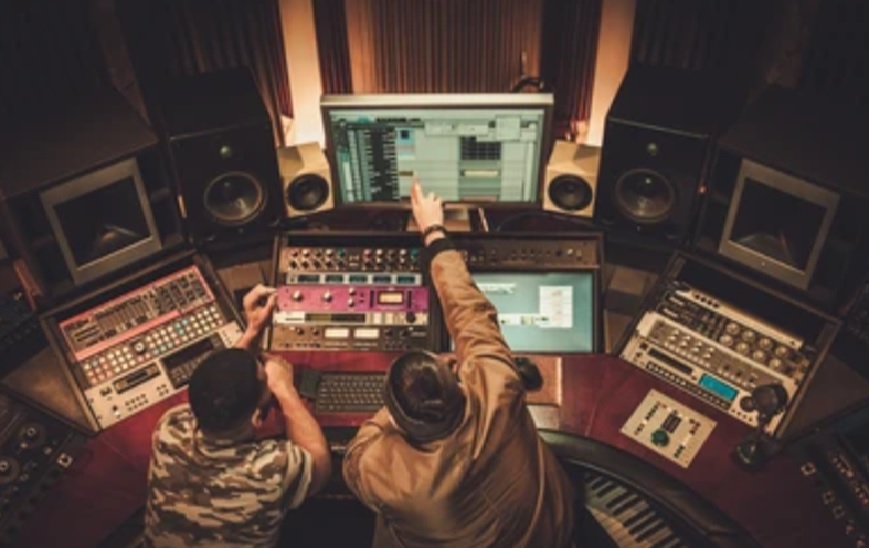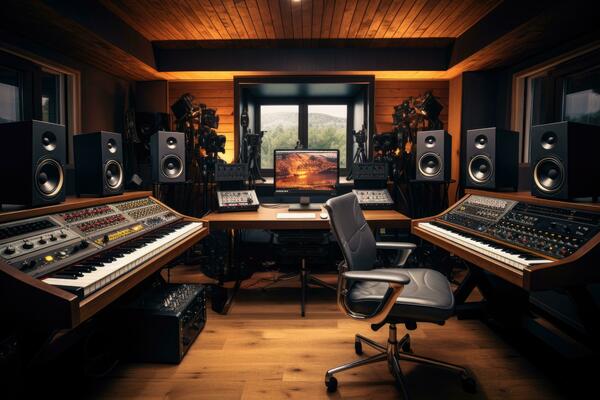
The Ultimate Guide to Music Studio Session Rentals: What Every Artist Should Know
In the world of music production, having access to a professional studio is a crucial element of the creative process. For many artists, renting a music studio session is an essential step in crafting their sound, whether they are working on a single track or an entire album. This guide will explore the key aspects of music studio session rentals, offering insights into what every artist should know before booking time in the studio.
Understanding the Basics of Music Studio Session Rentals
What Is a Music Studio Session Rental?
A music studio session rental refers to the process of booking time in a professional recording studio to work on music projects. These studios are equipped with high-quality audio equipment, soundproofing, and various instruments, providing artists with the environment needed to produce top-notch recordings. Renting a studio session allows artists to access facilities that they might not be able to afford to own, making it a cost-effective solution for both emerging and established musicians.
Why Rent a Music Studio Session?
There are several reasons why an artist might choose to rent a music studio session:
- Professional Sound Quality: The acoustic design and high-end equipment in a professional studio can significantly enhance the quality of your recordings.
- Access to Expert Engineers: Many studios offer the services of experienced sound engineers who can help fine-tune your recordings, ensuring that your music sounds its best.
- Creative Environment: Being in a dedicated space designed for music production can inspire creativity and focus, allowing you to make the most of your session time.
Choosing the Right Music Studio for Your Needs
Factors to Consider When Selecting a Studio
When searching for the ideal music studio session rental, several factors should be considered to ensure you select the right environment for your project:
- Studio Equipment and Facilities: Ensure that the studio is equipped with the necessary instruments, microphones, and mixing consoles to meet the specific needs of your music. Additionally, check if the studio has software and plugins that you are familiar with or require for your project.
- Acoustic Environment: The studio’s acoustic treatment is crucial for achieving a clean and accurate sound. A well-designed studio will minimize external noise and prevent sound reflections, providing a controlled environment for recording.
- Studio Location: The studio’s location can impact your schedule and budget. Consider the convenience of the studio’s location, including its proximity to your home or accommodation, and any additional travel costs that may arise.
- Rates and Packages: Studios often offer different rental packages, ranging from hourly rates to block bookings. Evaluate your budget and the amount of time you will need to complete your project to choose a package that offers the best value.
Booking and Scheduling
Once you have chosen a studio, the next step is to book your session. Here are some tips to ensure a smooth booking process:
- Plan Ahead: Popular studios often have busy schedules, so it’s advisable to book your session well in advance, especially if you have a specific date in mind.
- Discuss Your Needs: Communicate your project requirements with the studio manager or engineer before booking. This will help them prepare the studio according to your needs and may also allow them to offer valuable advice.
- Confirm the Details: Make sure to confirm the date, time, and duration of your session, as well as any additional services (such as engineering or mastering) that you may require.

Maximizing Your Music Studio Session Rental
Preparing for the Session
To make the most of your music studio session rental, thorough preparation is key:
- Rehearse Your Material: Arrive at the studio with your material well-rehearsed. This will save time during the session and ensure that you can focus on capturing the best possible performance.
- Organize Your Files: If you are bringing in existing tracks or digital files, make sure they are organized and compatible with the studio’s equipment. This will prevent delays and technical issues during your session.
- Have a Clear Vision: Before your session, outline your goals and the specific sound you want to achieve. Share this vision with the studio engineer to align expectations and streamline the recording process.
During the Session
Once in the studio, staying focused and productive will help you get the most out of your rental:
- Communicate with the Engineer: Keep an open line of communication with the studio engineer. Their expertise can help you refine your sound, so don’t hesitate to ask for their input or suggestions.
- Take Breaks: Long recording sessions can be mentally and physically draining. Schedule short breaks to maintain your energy and creativity throughout the session.
- Be Flexible: While it’s important to have a plan, be open to spontaneous creativity. Some of the best ideas can emerge during the recording process, so allow room for experimentation.
Post-Session Considerations
Reviewing and Editing
After your session, it’s time to review the recordings and make any necessary edits:
- Listen Critically: Take the time to listen to the recordings in different environments (e.g., in your car, on headphones) to ensure that the sound quality is consistent across various playback systems.
- Make Revisions: If there are elements of the recording that need to be adjusted, work with the studio or a professional editor to make the necessary revisions before finalizing the tracks.
Next Steps
Once your recordings are complete, you can move forward with mixing, mastering, and distributing your music. Consider whether you will return to the same studio for these additional services or if you will outsource them to another professional.
Conclusion
Renting a music studio session is an investment in the quality of your music. By understanding the key aspects of music studio session rentals and taking the time to prepare, you can ensure that your time in the studio is both productive and creatively fulfilling. Whether you are a solo artist or part of a band, the right studio environment can make all the difference in bringing your musical vision to life.




